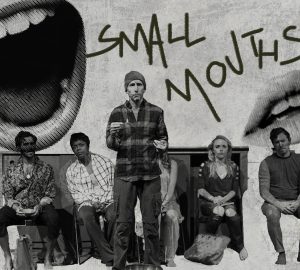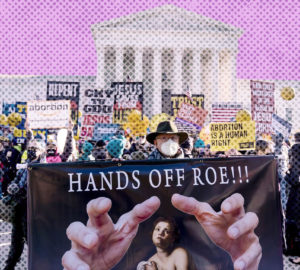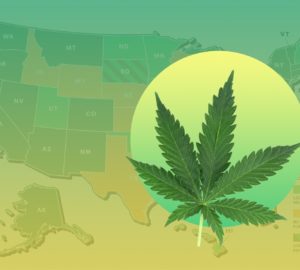
It’s been nearly two years since Roe v. Wade was overturned. Abortion has long been a bipartisan and overwhelming popular topic; but despite this, America’s highest court decimated 50 years of precedent. According to Axios, 64% of Americans as of 2023 supported abortion legality in almost all cases. Even 51% of Americans favor abortion legality up to 15 weeks.
Politicians, especially in red states, were already making efforts to restrict abortions before Roe v. Wade was overturned. In my home state of Texas, Governor Greg Abbott signed the Heartbeat Act into effect on May 19, 2021. This bill would prohibit abortions past the five or six-week mark when cardiac activity is first detected.
Without federal protection, access to abortion is only dwindling further. We almost instantly saw the consequences of it. The Center for American Progress states that “The Guttmacher Institute, which tracks state-level abortion legislation, in 2022 alone, state legislators introduced 563 provisions to restrict access to abortion, and 50 of those restrictions were signed into law the same year.” States also began to implement bounty hunter-style laws like Texas’ Heartbeat Act. On top of being a near-total ban, this law permits individuals to sue anyone who performs abortion care, putting medical professionals at risk of prosecution. So, nearly two years after this decision, what are the most recent state actions to restrict access?
Arizona
The most recent case of restricting access comes from the Grand Canyon State, Arizona. The state’s Supreme Court plans to enforce a 160-year-old law that originated before Arizona became a state. This antebellum law only makes exceptions for abortion if the mother’s life is deemed to be “at risk.” Beyond this incredibly vague language, it offers no exceptions for rape or incest, and it is the closest law so far to a total abortion ban. Similar to Texas’ Heartbeat Act, doctors could be prosecuted for performing abortions. This was a notion that was argued by the court but is not explicitly stated in the law. If charged, medical professionals could face two to five years in prison upon conviction.
Arizona’s Attorney General, Kris Mayes, rightfully called it a “draconian law that has no place in the modern landscape.” Governor Katie Hobbs called on the state legislature to act immediately, but on April 17, GOP lawmakers voted against a hearing to appeal the ban. This puts many women or AFAB (assigned female at birth) people in an awkward or even terrifying position. Many gathered for a protest in front of the Flagstaff City Hall demanding their legislators take action, but with many of those legislators blocking something as simple as a hearing, what does the future of abortion rights look like in the state?
Abortion advocates say they have enough signatures to add a request for a constitutional amendment to the ballot in November. If successful, this could protect the right to abortion until viability or until a fetus can survive outside the womb. It’s the best option for citizens, and it gives them a chance to express their opposition to this outlandish law via the power of their vote. However, it is not guaranteed to land on the ballot, which could leave Arizona constituents in limbo.

If it fails, or even in the meantime, this could cause great harm. Other than having no exceptions for rape or incest (which has been very aptly deemed draconian), this could also affect ectopic pregnancies and miscarriages. An ectopic pregnancy is when the fetus develops outside the uterus, typically in a fallopian tube. It is extremely dangerous for the mother and has historically been protected, even in the case of abortion restrictions. However, lawmakers could take advantage of the vagueness of language surrounding the protection of the mother and put this condition at risk as well. According to the Kaiser Family Foundation (KFF), “Providers have argued that the vagueness of the bans is unconstitutional since it places them in a situation where it is unclear how they might follow the law.”
Alternatively, miscarriages will no doubt be prosecuted. In the past, people who miscarry have been denied access to care. There have been reports in states like Texas and Louisiana of women who are actively miscarrying and are being denied care if there is still detectable fetal cardiac activity. Even in states that don’t explicitly criminalize miscarriage care, they may still be denied due to medical providers’ fear of being prosecuted. This delay in both ectopic and miscarriage care could cost people their lives, and the consequences will lie on women who have to bear that excruciating weight.
Georgia
A month after the Supreme Court decision, Georgia followed in the footsteps of Texas. It became one of 11 states to sign a Heartbeat law into action. This type of law is quite controversial, as most women don’t even realize they are pregnant until the five or six-week mark. According to the University of California San Francisco, “One in three people discover pregnancy at six weeks’ gestation or later, and about one in five discover pregnancy past seven weeks.” This shows that the law might as well be a total abortion ban. Similarly to Texas, any medical professional who performs an abortion could be subject to prosecution.
Heartbeat laws are based on the work of Jane Porter, an anti-LGBTQ, anti-abortion, and 2020 election denier. It’s based on the principle that life begins at the start of cardiac activity, an offshoot of fetus personhood. There has long been a debate about when human life begins. Some may agree with five to six weeks, others may believe it begins at birth, and some may even go further than Porter by believing it starts at conception. Porter seems to be winning the debate recently with other Bible Belt states, as Alabama, Kentucky, and Missouri are passing similar legislation.

For the past two years, abortion restrictions have been spreading like wildfire. It’s important to understand the overall harm so we can contextualize why abortion rights should be protected. Beyond the lack of protection for miscarriages and other complications, marginalized communities feel the brunt of this legislation. Even before the decision, lower-income and minority communities have had a harder time finding access to reproductive health services. They are more likely to be uninsured or underinsured, and legislation like the Hyde Amendment only made access to abortion care more difficult. It prohibits federal funds from being used for abortion care. Due to this, many can’t receive treatment and are forced to continue their pregnancies.
Historically, people of color have been at higher risk of pregnancy complications. Black women are three times more likely to die in these situations compared to their white counterparts. This is derived from an ideology called scientific racism. Many believe Black women have a higher pain tolerance, leading doctors to not take their complaints seriously. Further restrictions to miscarriage and abortion care will only increase this terrifying statistic.
The most prescient factor in all of this is that abortions don’t stop, they just become more dangerous. Abortion bans lead women to partake in back alley abortions. The coat hanger has long been used as a symbol in protests to illustrate the horrors of these bans. A post-Roe world could cause many to go to drastic measures. According to KFF, “Maternal mortality rates are higher in states that ban abortion.” Almost half of all abortions globally take place in unsafe conditions. This results in 23,000 preventable pregnancy deaths a year, and this number might only increase the fewer protections there are.
November is sure to be a vital time for many voters regarding this issue. The Democratic Party is already making moves to capitalize on the GOP’s failures. Joe Biden has started to feature abortion rights in his campaign ads, as he tries desperately to stay afloat with his overwhelming unpopularity. Even Republican politicians like Kari Lake and Kay Ivey have gone back on their previous statements as they begin to feel the political consequences. This post-Roe world has become a Wild West as politicians use this situation to their advantage without securing protections for their constituents. Time will only tell the consequences that will be dealt.






















